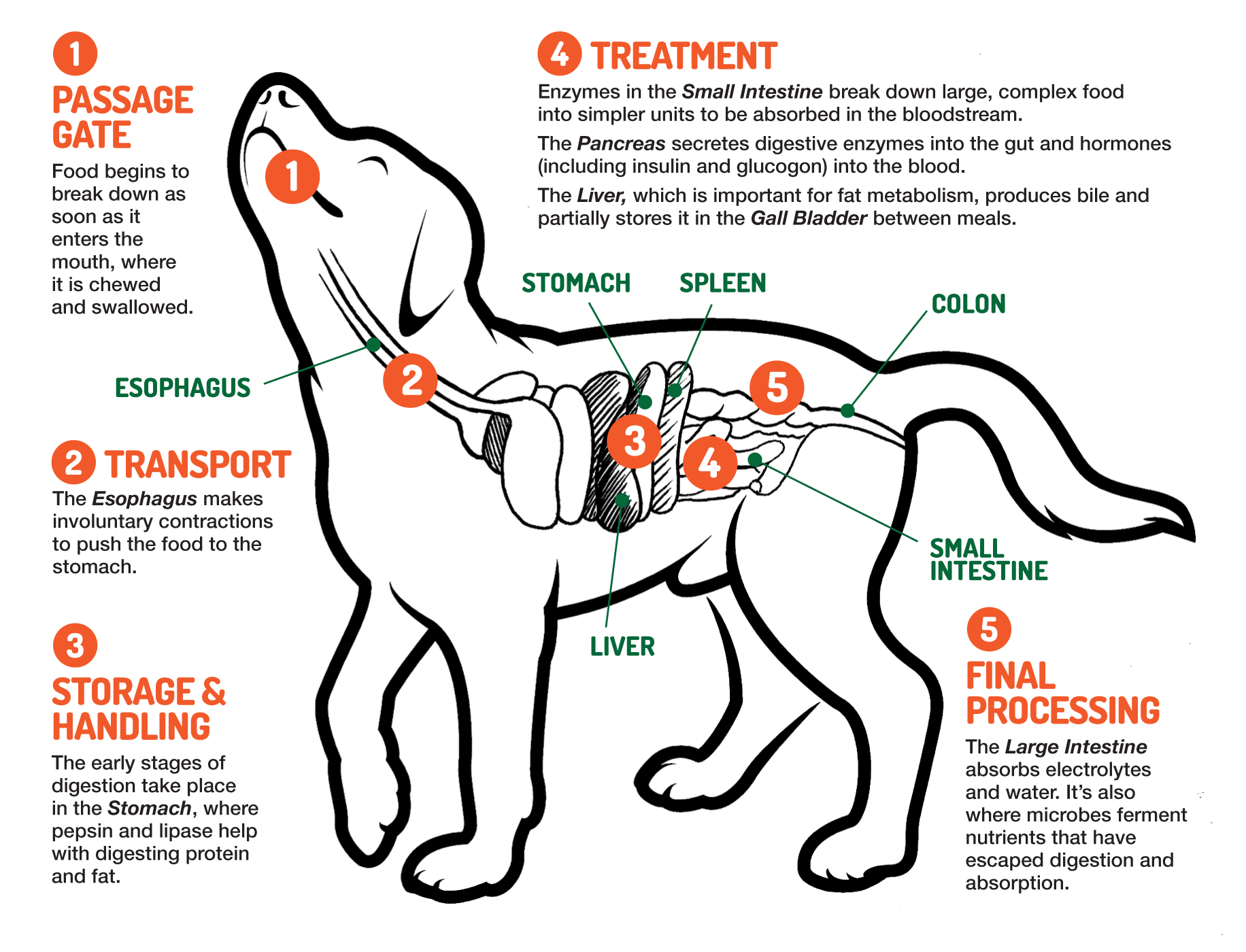DOG NUTRITION
The Healthy Barker uses evidence-based scientific research when it comes to developing our foods, to provide the right nutrition for your dog. A diet that is easy for a dog to digest is also essential, which is why we carefully select our ingredients and use proper preparation to ensure that your dog can absorb the optimum nutritional value into their system.

A dog processes and absorbs its nutrients in a way similar to humans, however a dog’s nutritional needs are much different than our own. As our knowledge of the relationship between diet and health grows, it’s important to base our feeding choices on accurate information. They need a diet that includes balanced amounts of protein, fats, oils and carbohydrates, along with essential minerals and vitamins for long-term health. Your dog’s unique nutritional requirements will depend on a lot of factors, including size, breed, and stage in life.
Feeding your dog a high-quality well-balanced food is one of the best things that you, as a pet owner, can do to keep your dog healthy. A good food will keep your dog’s hair coat shiny and sleek. It will strengthen his immune system and keep his digestive system in good health.
While meat makes up the majority of their diet, domestic dogs also derive nutrients from grains, fruits, and vegetables. These non-meat foods are valuable sources of essential vitamins, minerals and fiber.
PROTEINS AND
AMINO ACIDS
A dog’s dietary protein contains 10 specific amino acids that a dog’s body can’t manufacture on its own. They provide the building blocks for many biologically active compounds and proteins. They also donate the carbon chains needed to make glucose for energy.
Dogs are known to selectively choose foods that are high in protein. Whether by taste or a complex response isn’t known. But they definitely seem to know what they need.
FATS AND
FATTY ACIDS
The most concentrated source of energy in your dog’s diet comes mainly from animal fats and seed oils of various plants. They serve as carriers for important fat-soluble vitamins and supply essential fatty acids that their bodies can’t produce on their own.
Fatty acids keep your dog’s skin and coat healthy. Deficiencies in Omega-3’s may be associated with vision problems and impaired learning ability. Omega-6’s have important physiological effects in the body.
MINERALS
There are 12 minerals that are vital to your dog’s health. Calcium and Phosphorus are needed for strong teeth and bones. Magnesium, Potassium and Sodium regulate nerve impulse transmissions, muscle contractions and cell signalling. Many minerals are present in minute quantities which act as helpers in a wide variety of enzymatic reactions. These include Selenium, Copper and Molybdenum, among others.
Having too much, or too little of the necessary minerals can lead to serious conditions in your dog’s health and well-being.
VITAMINS
Dogs require low quantities of vitamins in their diets, which play an important part in many metabolic activities. Vitamin deficiencies have been proven to cause a variety of health problems in clinical studies. For example, a vitamin A deficiency can result in motor and vision impairment, skin lesions, respiratory ailments and susceptibility to infections.
Some vitamins, like vitamin D, are necessary in small doses, but toxic in excess amounts. If your pooch is having health issues, take a good look at their diet to determine if their food might be lacking.

